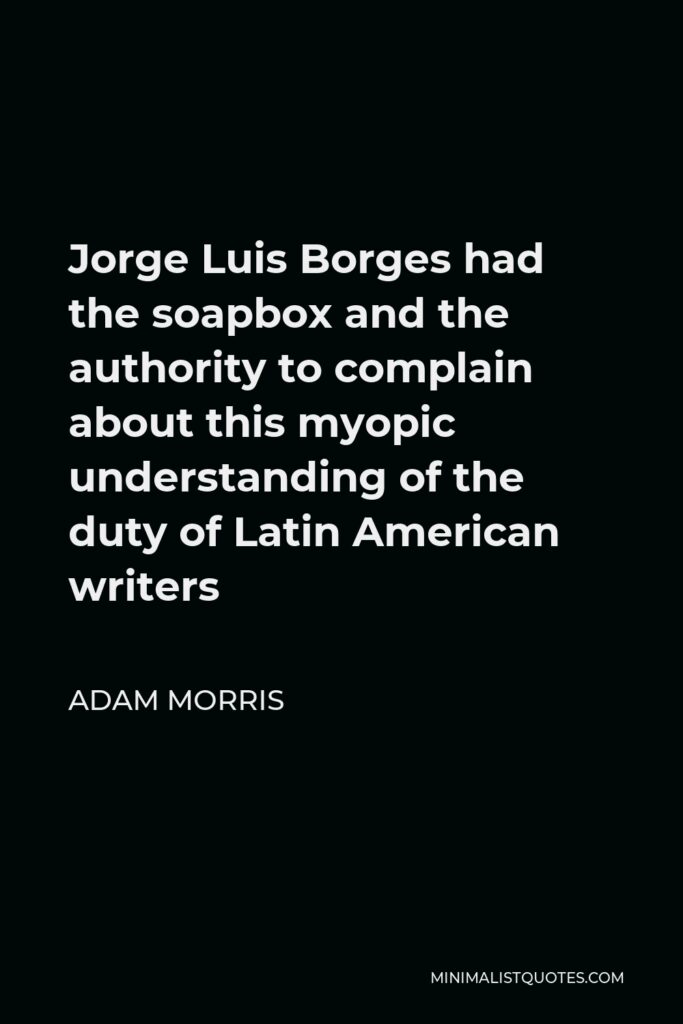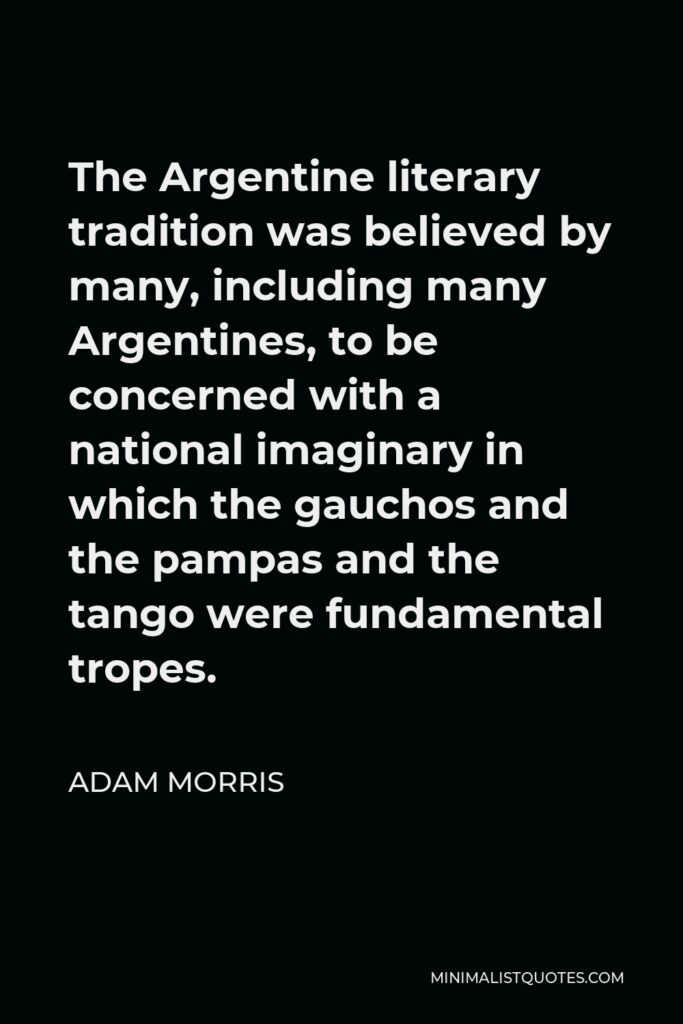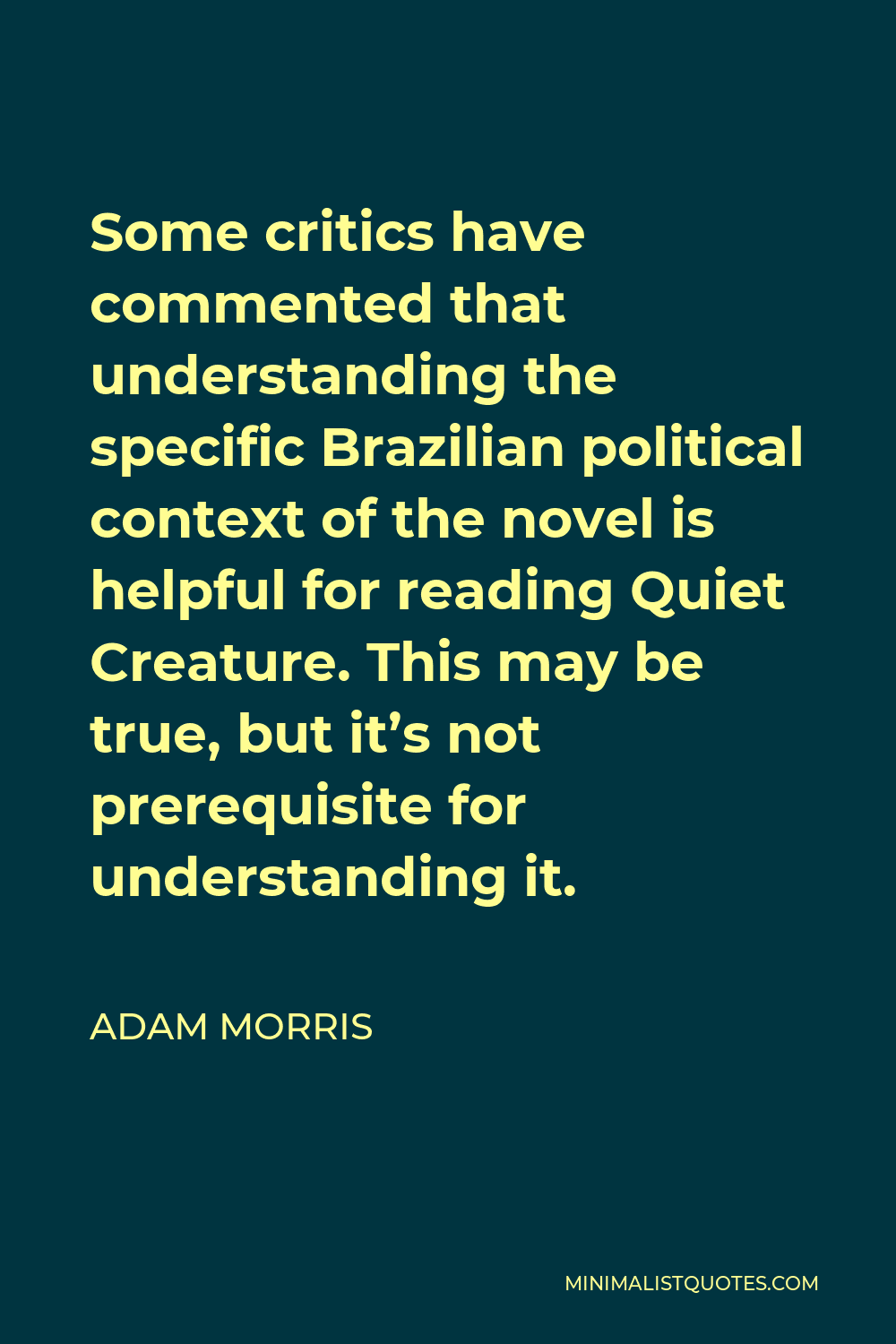Jorge Luis Borges had the soapbox and the authority to complain about this myopic understanding of the duty of Latin American writers
ADAM MORRISSome critics have commented that understanding the specific Brazilian political context of the novel is helpful for reading Quiet Creature. This may be true, but it’s not prerequisite for understanding it.
More Adam Morris Quotes
-







-







This neglect of a very important Brazilian writer is, in my view, the result of Brazil’s relative isolation from what metropolitan tastemakers.
ADAM MORRIS -







The Argentine literary tradition was believed by many, including many Argentines, to be concerned with a national imaginary in which the gauchos and the pampas and the tango were fundamental tropes.
ADAM MORRIS -







And these are universal relational matters, not necessarily particular to any country.
ADAM MORRIS -







One of my methods for developing my own voice in fiction, a process I am taking very slowly and deliberately, is through these very intense encounters with certain writers.
ADAM MORRIS -







The main reason I decided to study Latin American literature was because I’d gotten somewhat bored by the American fiction I was reading. I am not drawn to a specific style or aesthetic.
ADAM MORRIS -







The authors I prefer are all very different and are not limited to certain genres or even certain time periods.
ADAM MORRIS -







I realized I had some cultural capital to spend, and I wanted to use it to introduce another author who might be considered a risk by conventional publishers. Michael Noll was at the top of my list.
ADAM MORRIS -







Unless you count the political backdrop, which in any case is a familiar one to many international readers
ADAM MORRIS -







I primarily write nonfiction. Research, reflection, and spending time with ideas are important to me. So, this is how I spend most of my time writing – in thought.
ADAM MORRIS -







English offers both obscurity and dark or darkness, and some translators will tell you the Latinate word is generally reserved for poetic and figurative expressions, while the Germanic word is used for colloquial and idiomatic use.
ADAM MORRIS -







I am not one of those translators who think that working closely with the writer will yield the best translation.
ADAM MORRIS -







I am surprised by the word psychedelic. João Gilberto Noll does not accept realism in a straightforward way, but I am more inclined to call Quiet Creature a realist text than I am to call it a psychedelic one.
ADAM MORRIS -







One that actually relates to all Latin American literature: that is, not every author is interested in being a representative of his or her national culture on the global stage.
ADAM MORRIS -







I was confident that I could find an editor and the readership for a translation
ADAM MORRIS -







When I think about literature, I think about it in the three languages I read easily – English, Spanish, and Portuguese.
ADAM MORRIS







